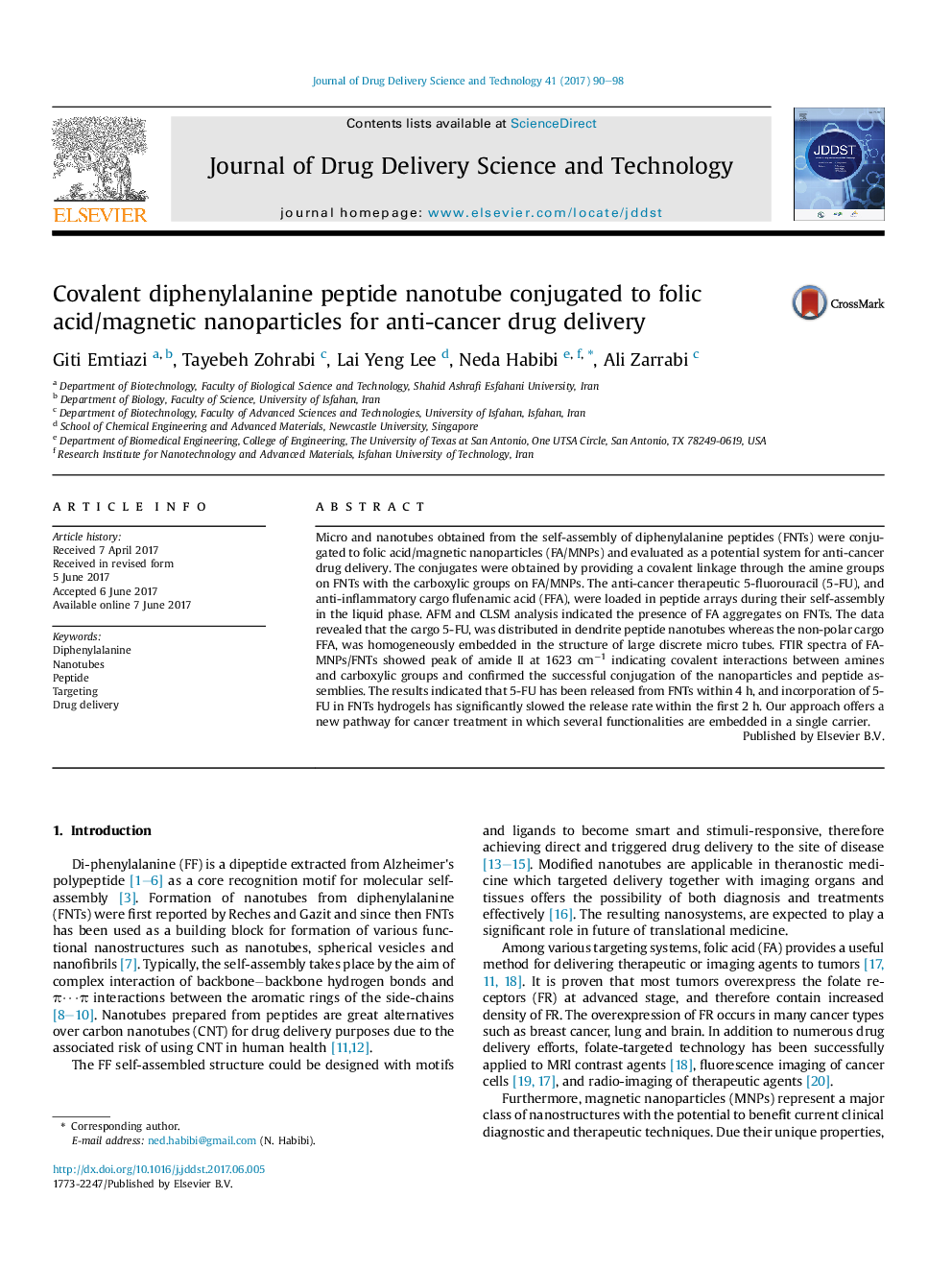| Article ID | Journal | Published Year | Pages | File Type |
|---|---|---|---|---|
| 5548039 | Journal of Drug Delivery Science and Technology | 2017 | 9 Pages |
Micro and nanotubes obtained from the self-assembly of diphenylalanine peptides (FNTs) were conjugated to folic acid/magnetic nanoparticles (FA/MNPs) and evaluated as a potential system for anti-cancer drug delivery. The conjugates were obtained by providing a covalent linkage through the amine groups on FNTs with the carboxylic groups on FA/MNPs. The anti-cancer therapeutic 5-fluorouracil (5-FU), and anti-inflammatory cargo flufenamic acid (FFA), were loaded in peptide arrays during their self-assembly in the liquid phase. AFM and CLSM analysis indicated the presence of FA aggregates on FNTs. The data revealed that the cargo 5-FU, was distributed in dendrite peptide nanotubes whereas the non-polar cargo FFA, was homogeneously embedded in the structure of large discrete micro tubes. FTIR spectra of FA-MNPs/FNTs showed peak of amide II at 1623Â cmâ1 indicating covalent interactions between amines and carboxylic groups and confirmed the successful conjugation of the nanoparticles and peptide assemblies. The results indicated that 5-FU has been released from FNTs within 4Â h, and incorporation of 5-FU in FNTs hydrogels has significantly slowed the release rate within the first 2Â h. Our approach offers a new pathway for cancer treatment in which several functionalities are embedded in a single carrier.
Graphical abstractDownload high-res image (224KB)Download full-size image
